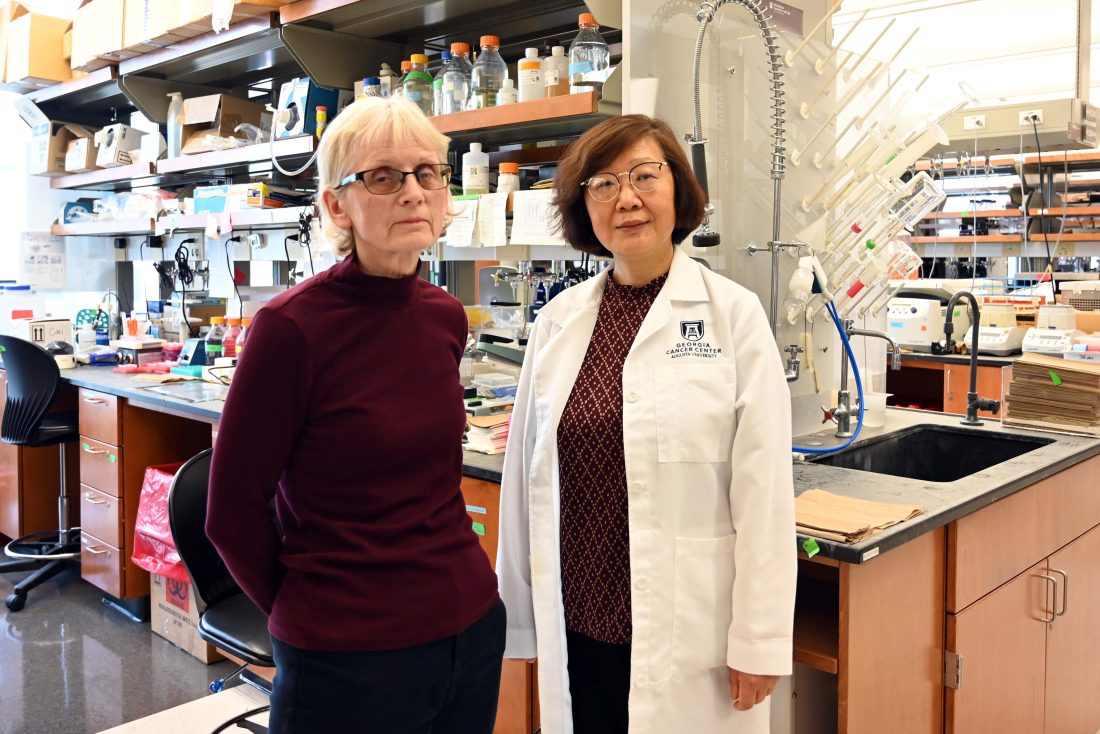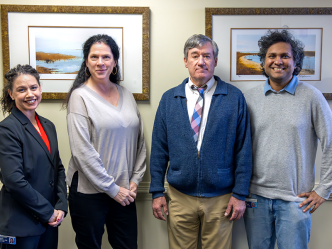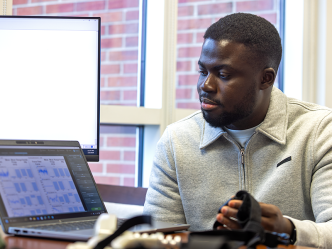Since 2019, the nonprofit organization Paceline has invested almost $1.5 million in cancer research. Earlier this year, Paceline presented grants to six research teams.
Yan Cui, PhD, professor at Augusta University’s Medical College of Georgia and the Georgia Cancer Center, and Zoya Kurago, PhD, a professor at the Dental College of Georgia, make up one of the teams awarded grants in 2024.
“One of the questions we were both interested in is how normal cells in and around the tumor react to cancer cells,” said Kurago.
Kurago and Cui’s research project is titled, “Epithelial-stromal cell interactions as drivers of precancer progression to cancer: Application of a single-cell transcriptomics in longitudinally-sampled oral precancer.”
Kurago is familiar with precancer changes in the oral cavity and said they are more visible due to the abnormalities in the cells that line the mucosal surface. The damage to the lining can show up as a red-white rough patch, and once this is visible, a sample is removed and submitted to a pathologist. Even with this early detection and thorough examination, it is often not possible to accurately predict which precancer will become cancer.
“What we see clinically and under the microscope doesn’t tell us how severe the problem is sometimes, and many times we can’t tell the patients the probability of it becoming cancer,” said Kurago.
Cui’s lab uses an imaging approach to cancer tissue samples, allowing cells to be tagged with multiple labels simultaneously. This means normal cells and malignant cells, abnormal cells that grow rapidly and can invade the tissue, can be mapped throughout a tumor.
“Current approaches, such as chemo and radiation, are very harsh, physiologically and psychologically,” said Cui. “If we can find a better way for early detection and diagnosis, we would minimize stress on patients.
By learning how cell-to-cell communication contributes to precancer evolution, they hope to be able to identify and manage precancers that can progress more accurately.
“The Paceline fund offers us a unique opportunity to utilize highly sophisticated, novel technology recently acquired by the Georgia Cancer Center, in order to test our hypothesis and obtain insightful preliminary data,” said Kurago.
With further research and funding by Paceline, they hope to reveal what the normal cells are doing in precancer that develops into cancer by using the novel technology CosMx, developed by Nano String. They will do this by identifying and comparing the “languages” of crosstalk between the precancerous damaged cells and surrounding normal cells.
Paceline’s goal is to cure cancer faster, and they do so by hosting their annual bike ride, PaceDay, where teams and individuals in our community raise funds for the Georgia Cancer Center.
Discoveries at Augusta University are changing and improving the lives of people in Georgia and beyond. Your partnership and support are invaluable as we work to expand our impact.
 Augusta University
Augusta University




